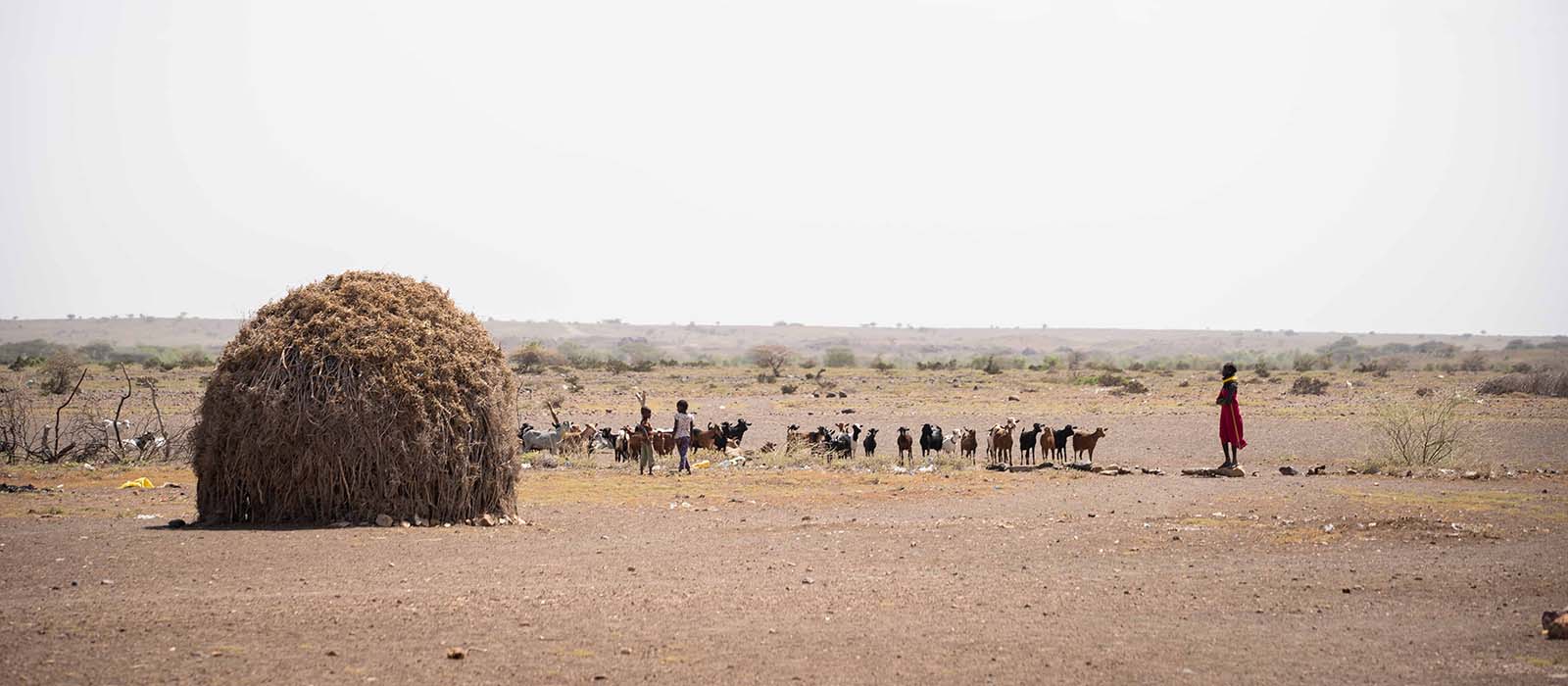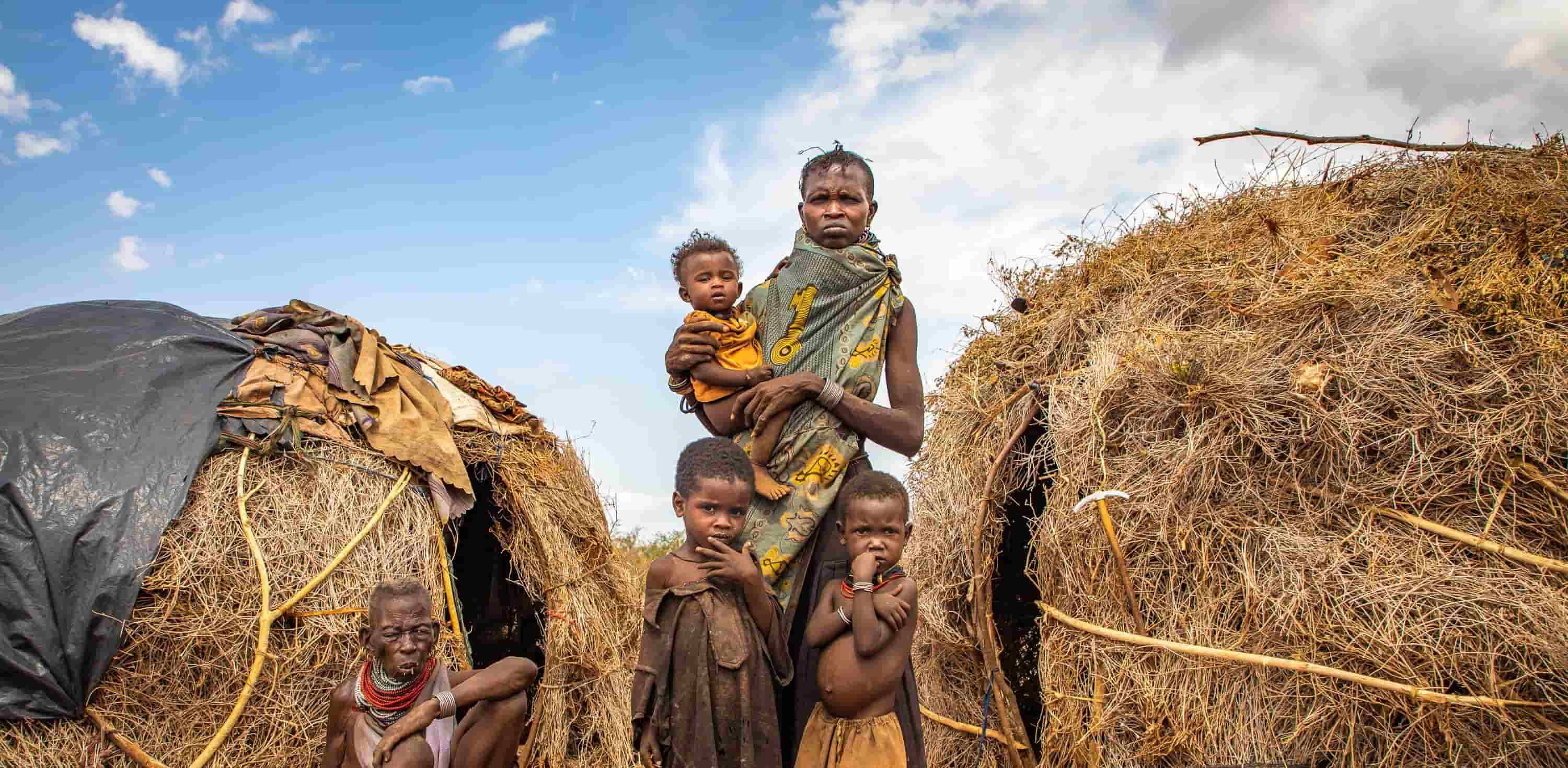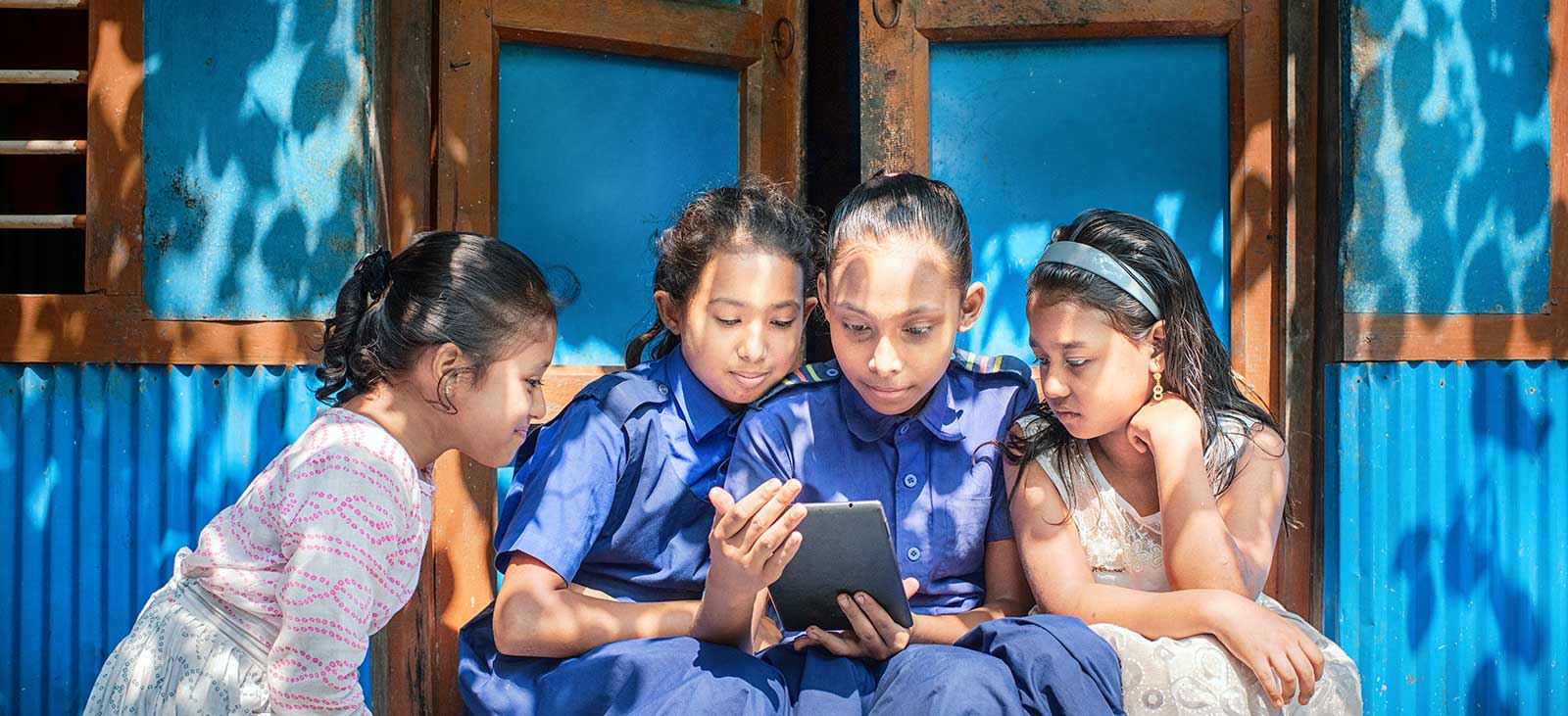Concern's Charles Eris not only works on the frontlines of climate change, his family and community have been living with the effects for his whole life.
Everything has changed
I was born and raised in a community in Turkana, one of the poorest counties in Kenya. The Turkana people are a nomadic community who used to keep large herds of cattle, goats, sheep and camels for meat, milk and dowry payment. Livestock is our people’s main source of livelihood and, for survival, our people search far and wide in search of water and pasture for their animals. All my life, I have lived in a community which is on the receiving end of the severe impacts of climate change. Now, I am 35 years old and the situation is worsening.
"The last such celebration of happy young men and women I witnessed was 13 years ago."
When there was enough rain and plenty of milk, people were happy, children played their games. There were many evening communal ceremonies called edonga where young men and women sang and danced together, making friendship and merriment. This was a symbol of a community which had enough food and resources. The last such celebration of happy young men and women I witnessed was 13 years ago. My own father used to have over 600 sheep and goats and I grew up knowing that we would never lack abundance, but that was many years ago. My family now has fewer than 50 goats and sheep combined. Over the years, everything changed in my community.
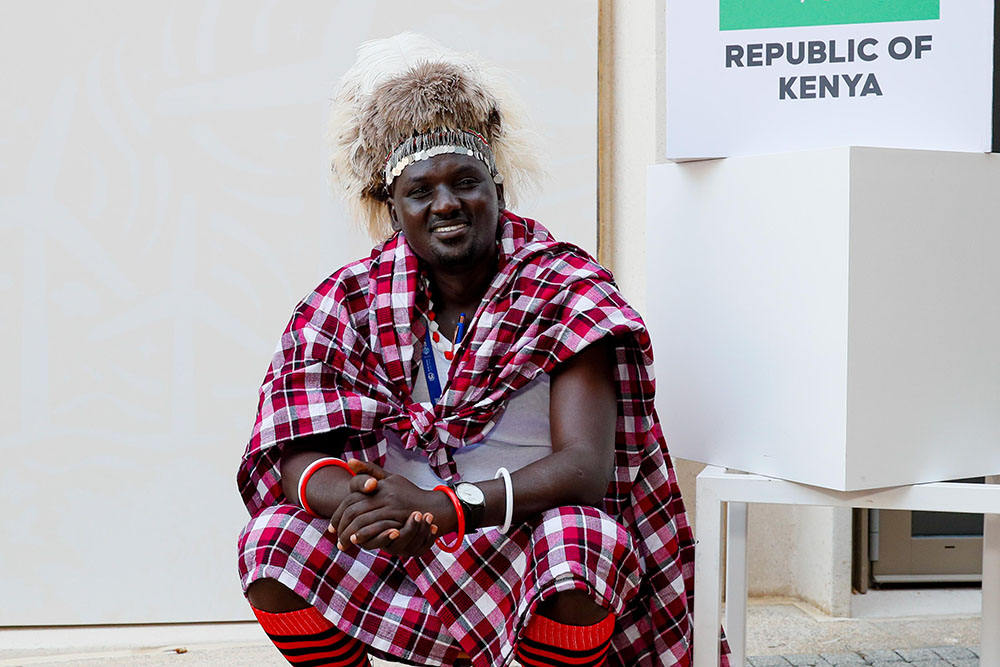
This struggle is real
Every season, the amount of rain has decreased. The cycle of drought that decimated our livestock assets has increased in frequency and severity, and before people can recover from the effects of one drought or flash flood, a more prolonged and severe drought hits my community, pushing them into poverty and destitution. The droughts have depleted people’s livelihoods and exhausted all their coping mechanisms. During droughts, people resort to coping mechanisms like going without meals for days, eating wild fruit and roots, and migrating into urban centers in search of unskilled wages.
"In some cases, people have died from suicide out of acute anxiety."
The community that used to be proud livestock keepers is no longer happy, our social and economic systems have been broken down by change in climate patterns. Loss of livelihoods has driven many people into depression and, in some cases, people have died from suicide out of acute anxiety. The most affected groups in our community are children, pregnant and lactating mothers and elderly people. Many children and lactating mothers are severely malnourished, and they can barely walk. Families no longer want to bear children, and young men and women are not interested in marrying because of a lack of livestock to pay for dowry or upkeep to sustain their family and bring up children.
In 2022, I saw a community struggling to feed itself, families going days without food, and livestock carcasses all over the place. We had gone five seasons without rain for the first time in 40 years. Food accessibility was a big problem. Incidences of malnutrition increased in the entire county, and hotspot areas for malnutrition were mapped for humanitarian support.
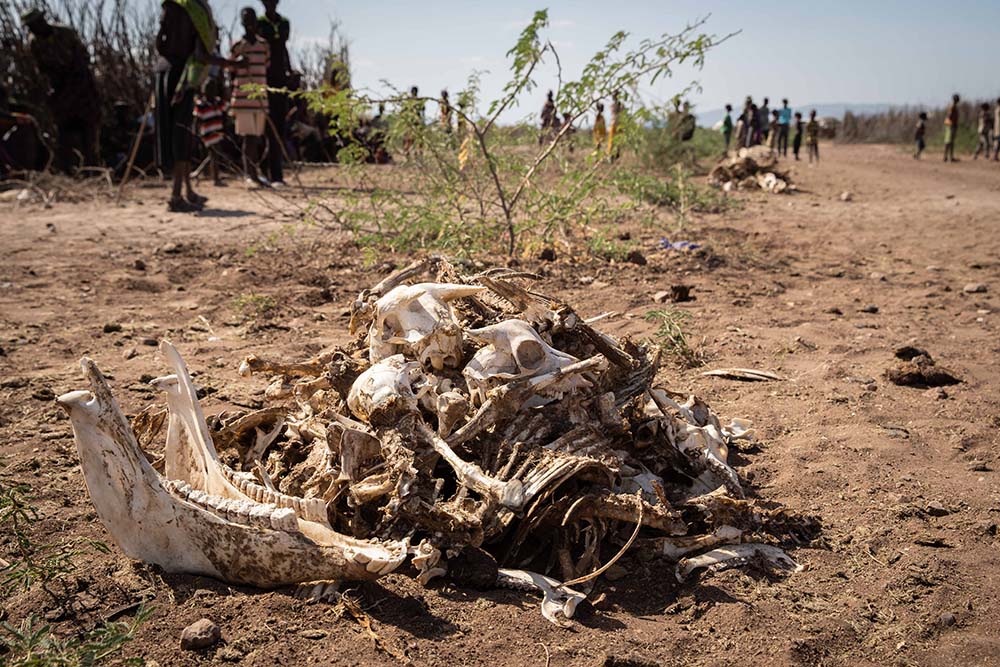
Bad numbers
Turkana people are always oscillating between two main disasters: drought and floods. The community is generally uncertain about the future, which looks gloomy with each passing season. According to a government report, the current Global Acute Malnutrition (GAM) rate stands at 26.4%, which is way above the emergency threshold of 15%, placing the county in a never-ending emergency situation.
"Most basic commodities are out of reach due to high inflation."
I live in a county where women, men and children walk for more than 11 km in search of water for drinking and for livestock. The distance to the water point keeps increasing and people no longer have energy or motivation to walk these distances. Even those who have a few livestock left know that they will lose them in the next drought and, for those who want to sell, the market is the challenge. Besides, my community doesn’t know what to do with the cash they would receive from the sale of livestock, as most basic commodities are out of reach due to high inflation.
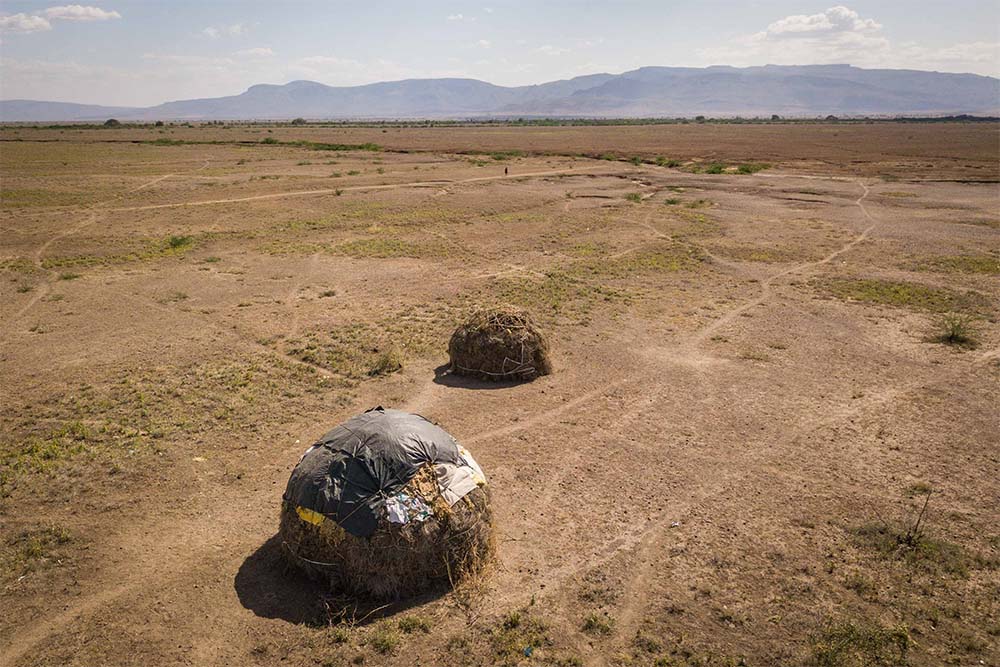
From strong to weak
Communities scratch riverbeds to find water. They can dig wells up to six meters to access water. I have seen a community moving from one well to another because the wells are drying up. The climate change overburdens women in my community; the drought increases domestic chores for women and young girls more than for men. Having lost livestock, men find nothing much to do because the only activity they have mastered is herding and watering livestock.
"When you ask them about the future, no one is certain."
Women put food on the table in most households. Women have formed and joined social/economic support groups where they pull resources together to engage in income-generating activities, thus shifting power dynamics in the community as women's voices are amplified in decision-making at household and community level. This is further bolstered by humanitarian organizations and government agencies that target women in provision of humanitarian aid.
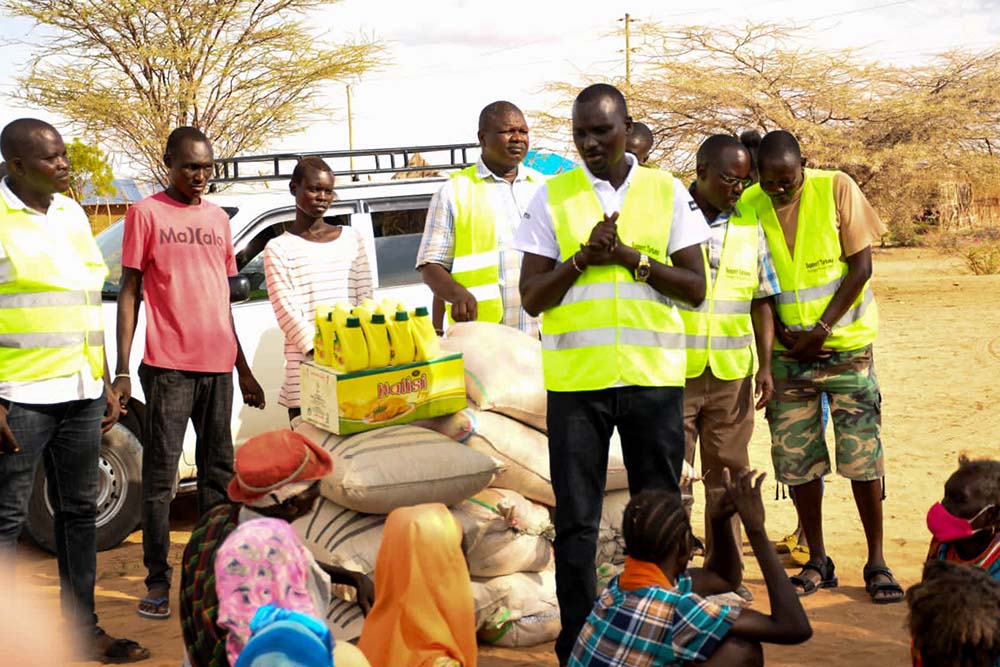
Men, women, and children in Turkana have gone from people who were strong 20 years ago, to people who are weak due to food and nutrition insecurity. You can’t choose who to support and who to leave out in any humanitarian aid. As a humanitarian worker, I always have difficulty during the community targeting process. When you ask them about the future, no one is certain. The climate change impact is real, and we are experiencing it. There is no hope for the future for many of these people.
Charles Eris is a senior livelihoods officer with Concern Worldwide in Kenya. He works in Turkana, the country's largest province and also one of the areas most affected by climate change. Concern Worldwide has worked in Kenya since 2002 and each year reaches tens of thousands of households with programs in health, nutrition, education, livelihoods, water and sanitation.
